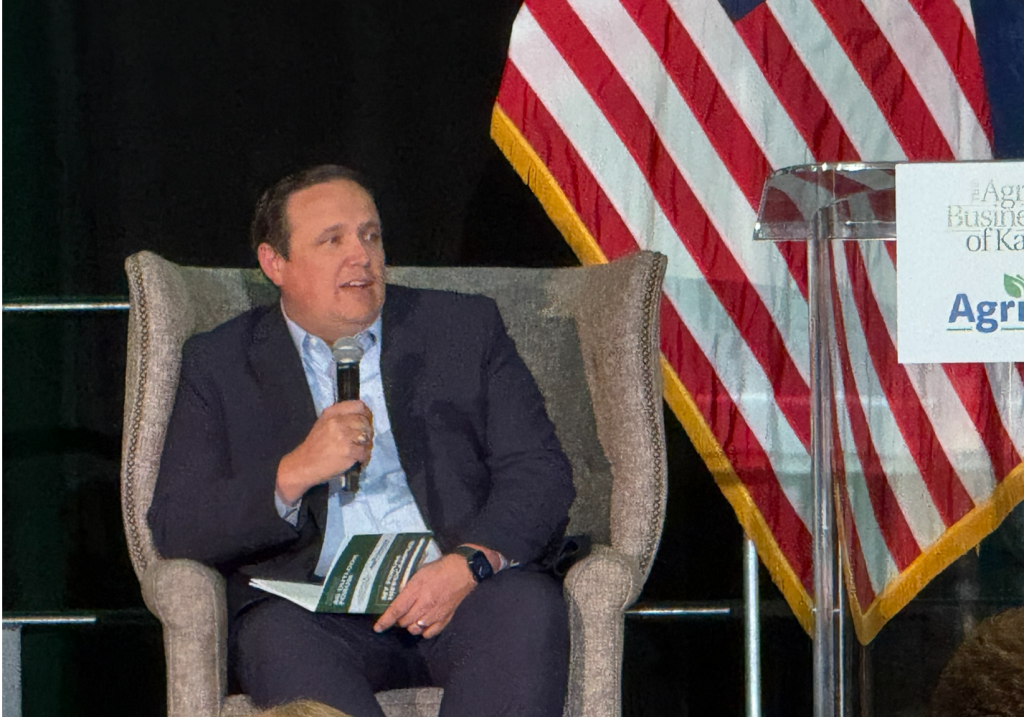
The U.S. agricultural sector is grappling with a severe cash flow problem despite significant recent federal aid, according to Dr. Bart Fischer of the Texas A&M Agricultural & Food Policy Center. In a discussion with Farm Director KC Sheperd at the Ag Outlook Forum, Fischer detailed the reasons for the lingering distress and the policy implications for producers.
The Lingering Cost Crisis
Fischer explained that even with the substantial American Relief Act and the “One Big Beautiful Bill” injecting funds into agriculture, the industry is still in a tough spot.
- Magnitude of Loss: The assistance has been overwhelmed by the magnitude of the financial losses. Fischer noted that the “cost of production over the last four years just absolutely exploded” and has been “magnified” by drought and other weather pressures.
- The Cash Flow Problem: The core issue is timing. Many of the farm safety net improvements made in the “One Big Beautiful Bill” won’t take effect until October of next year (2026). This leaves farmers in the fall of 2025 largely with a “cash flow problem,” creating a situation similar to the previous year and highlighting a need for a “bridge right now to try to get to the new crop year.”

Key Wins and Misses in the New Legislation
Fischer categorized the “One Big Beautiful Bill” as being “mostly wins” for agriculture, but noted they were insufficient to keep pace with cost inflation.
- Farm Policy Wins:
- Reference Prices: Increases were made to the reference prices in commodity programs, ranging from “roughly 10 to 20%”. However, Fischer pointed out this was a miss because the increases “weren’t big enough” to match the 30% jump in input costs seen over the last four years.
- Crop Insurance: Congress significantly improved crop insurance by increasing the premium support by “roughly five percentage points” and enhancing area-wide policies. The Supplemental Coverage Option (SCO) now has a “90% coverage level and an 80% premium subsidy,” which could allow growers to achieve up to 95% coverage.
- Base Acres: The bill also includes language to allocate a maximum of 30 million additional base acres to producers.
- Tax Policy Wins:
- Tax Rates: Permanently extended the lower tax rates.
- Pass-Through Deductions: Included important pass-through deductions, particularly for those operating as an LLC.
- Estate Tax: The exemption level was moved to $15 million ($30 million per couple), which will “largely protect, you know, most producers at death” from the 40% tax on net worth exceeding the exemption.
Options for a Cash Bridge
To address the immediate cash flow problem, Fischer identified two primary mechanisms that the administration and Congress are currently considering:
- A New Round of ECAP: The Emergency Commodity Assistance Program (ECAP) could be renewed for the 2025 crop year. However, ECAP previously only covered 26% of the loss for the 2024 crop. With losses potentially “up probably another 10 billion” over last year, the debate is over what payment factor to use to cover a necessary share of the even deeper hole.
- Trade Aid: President Trump has been “teasing trade aid” and has indicated he will use tariff revenue to support growers until trade negotiations stabilize. Fischer expects that this is where they will “end up.”
The Trade War and Producer Dilemma
Fischer characterized the current trade environment as a messy but necessary “reset” of international trade relationships.
- Accountability: While “no one likes tariffs in general,” most growers understand that the President is using them as a “negotiating tactic” to hold other countries accountable for their own trade barriers. This reciprocal approach means, “We’re going to do to you what you’ve been doing to us.”
- The Cost of the Fight: The challenge is that holding countries accountable is “really messy” and leads to retaliation, which means agriculture becomes a “political punching bag”.
- The Lesser of Two Evils: The situation presents a dilemma where “no farmer I know, wants another payment from the government,” preferring to get a good price from the market. However, if the choice is between taking support or “continued financial hemorrhaging,” most will opt for the support, which Fischer stated has “zero shame” because the U.S. is going through the process of holding other countries to account.
- Long-Term View: Fischer noted that the U.S. is facing countries, like China, that think in “100 year terms,” while the U.S. operates in four-year presidential cycles. This makes the trade confrontation “long past due” because “other countries have been taking and continue to take advantage of us today.”
Fischer’s ultimate advice to producers is to take advantage of the support while it’s available, look closely at the now-enhanced crop insurance options before the end of the month, and acknowledge that they are in this difficult situation because “other countries take advantage of us.”



















